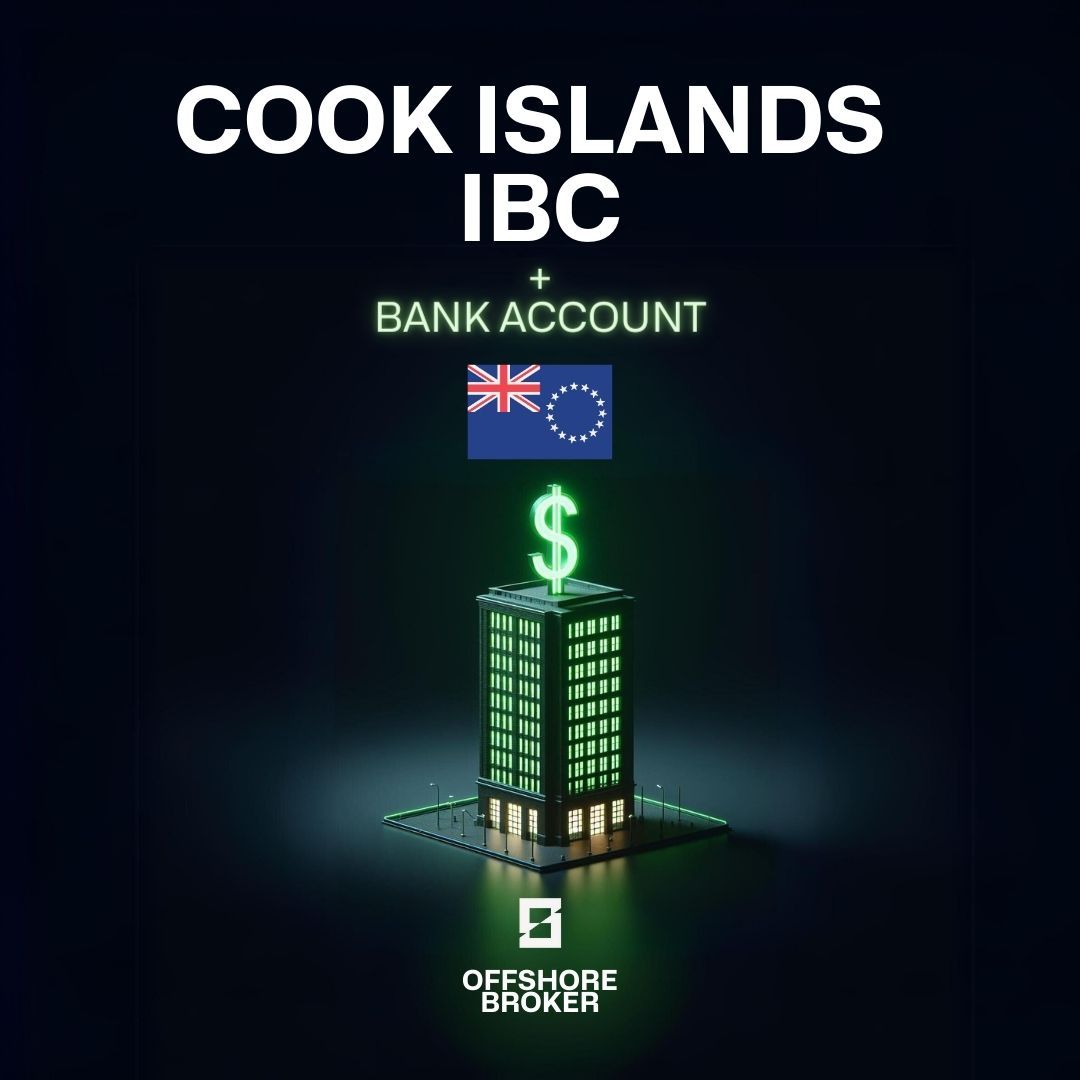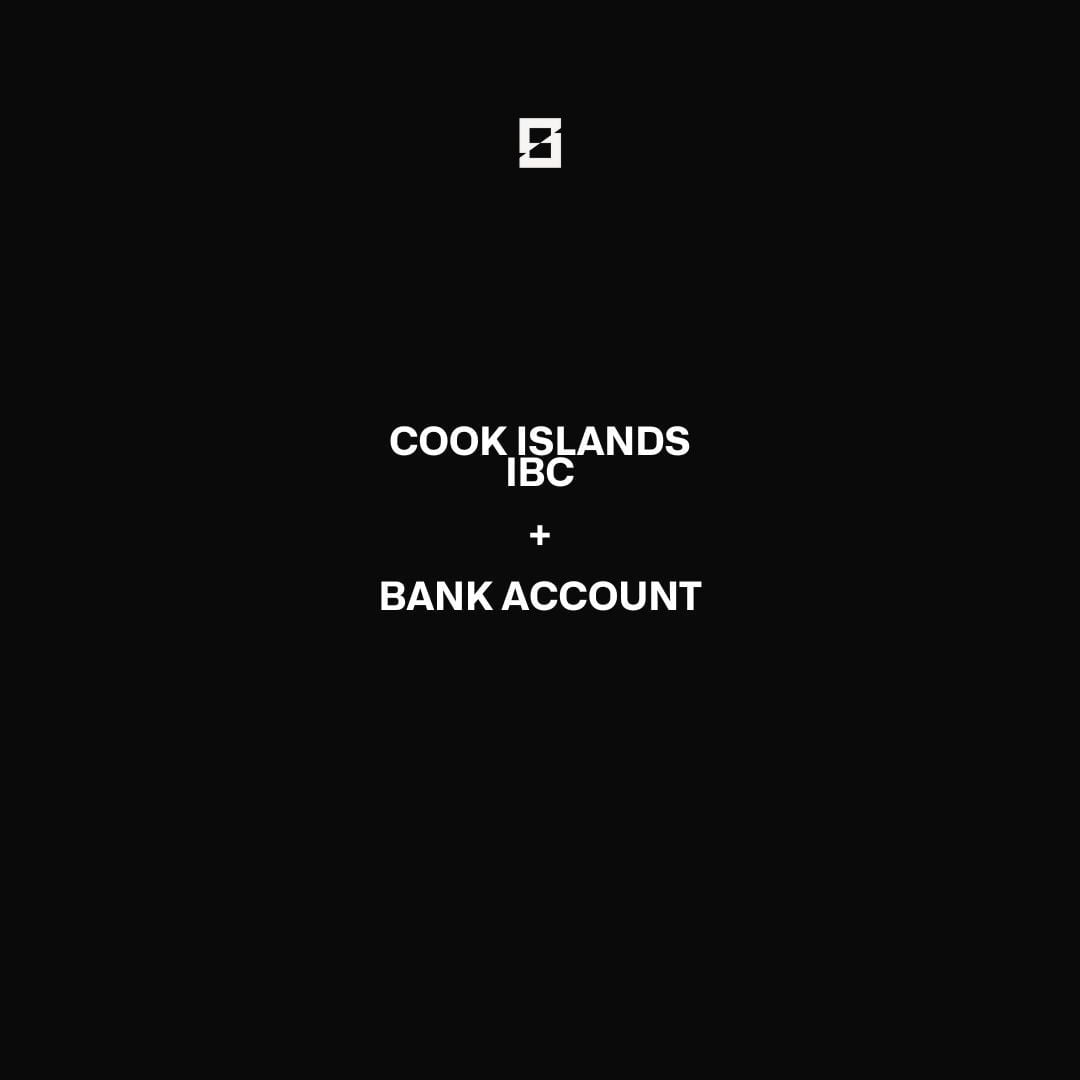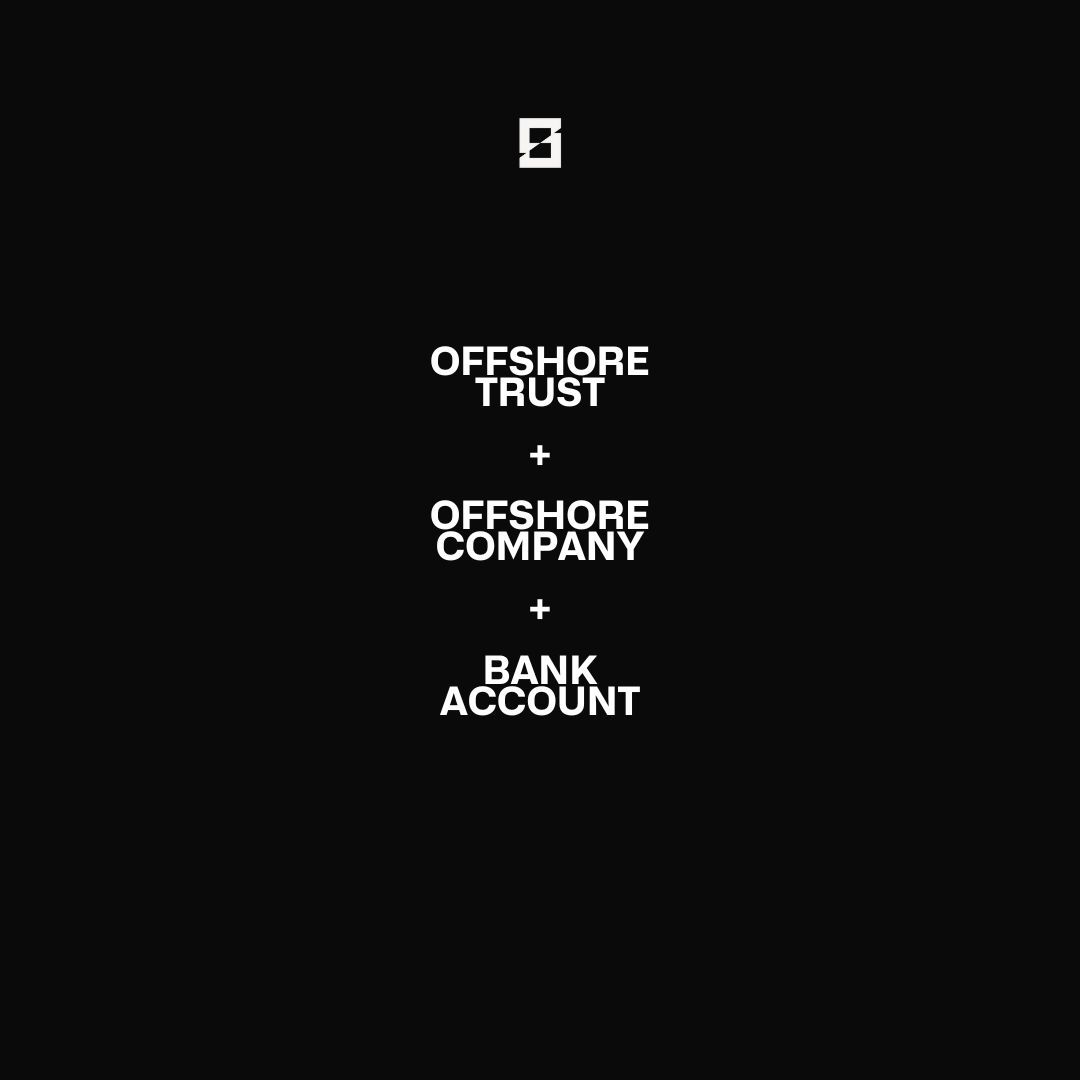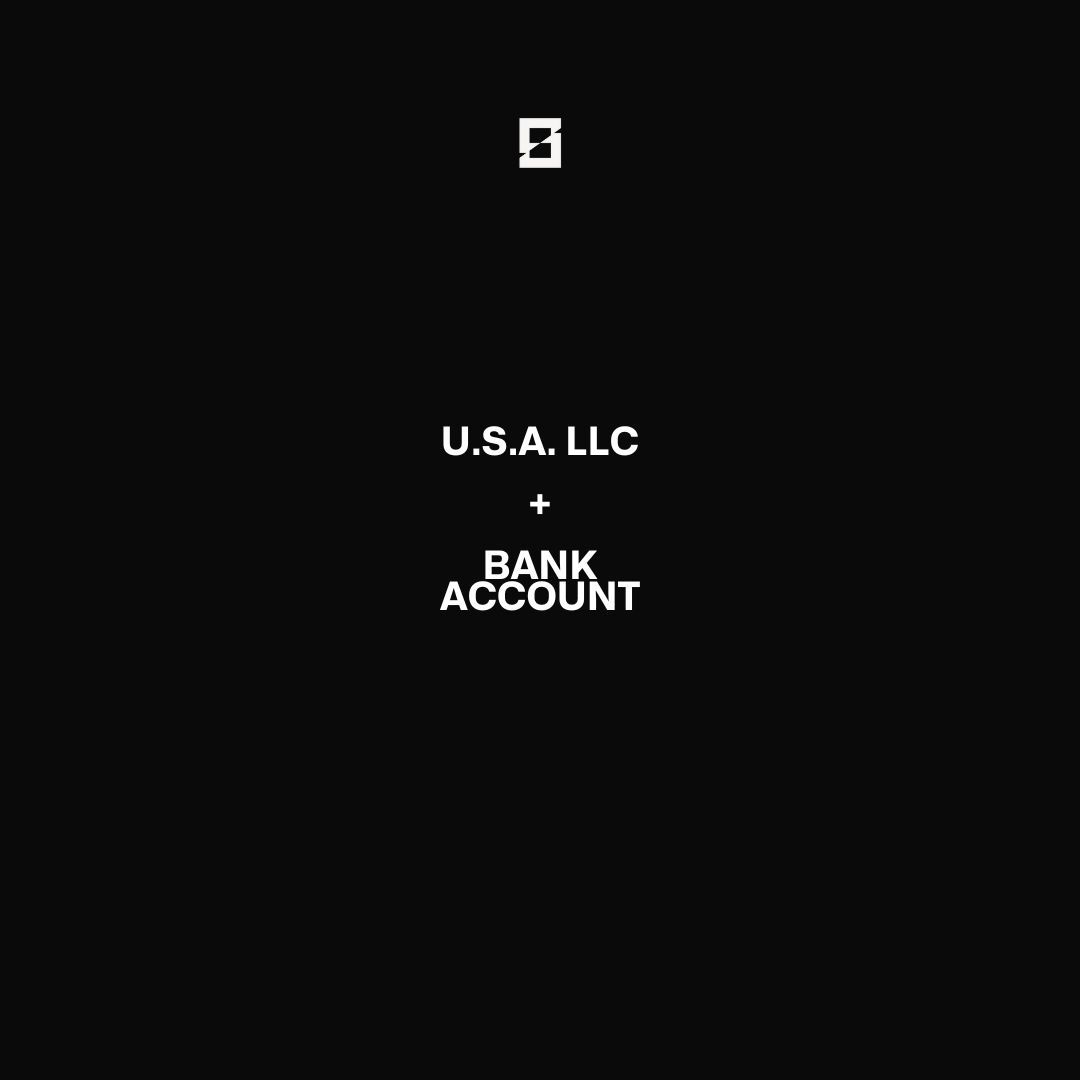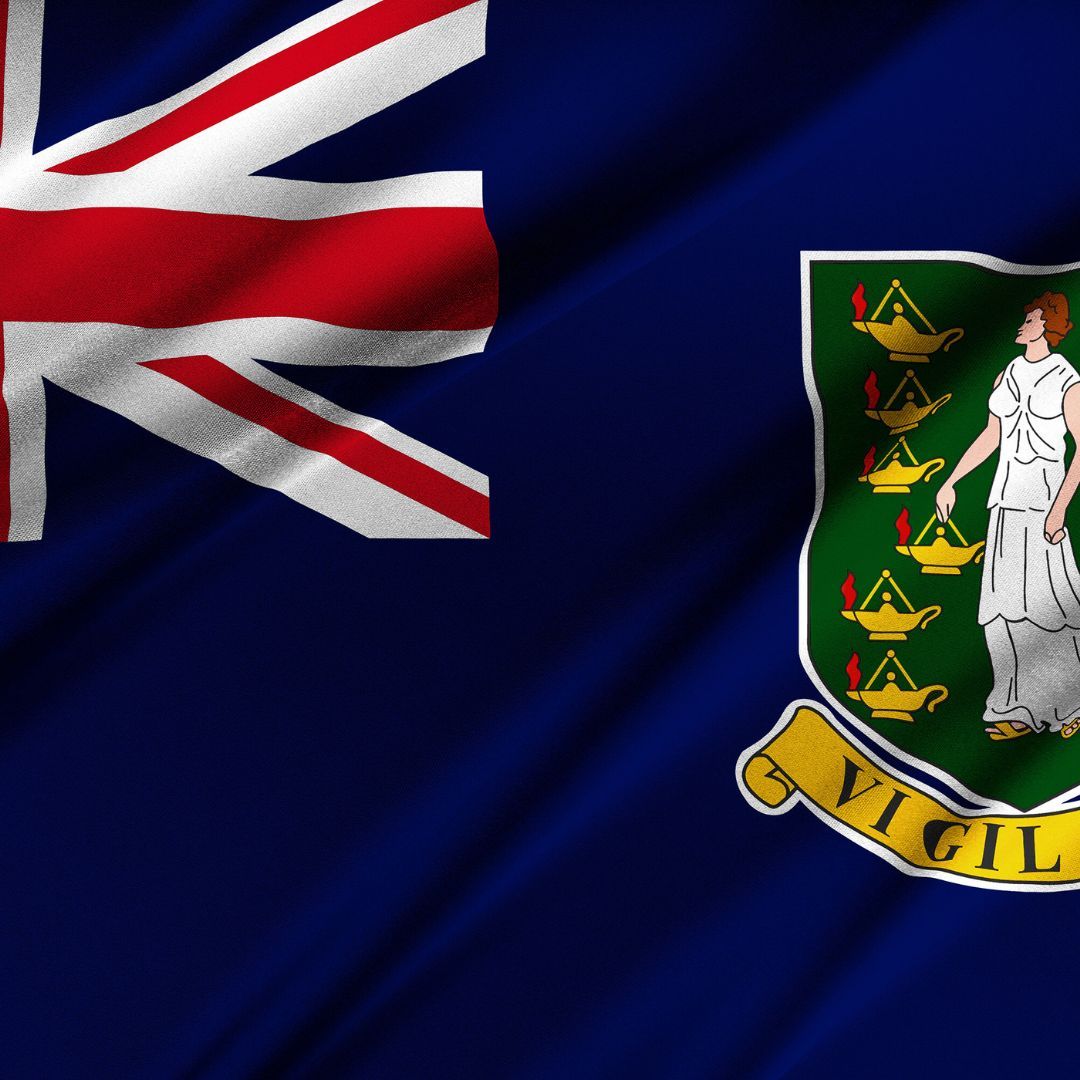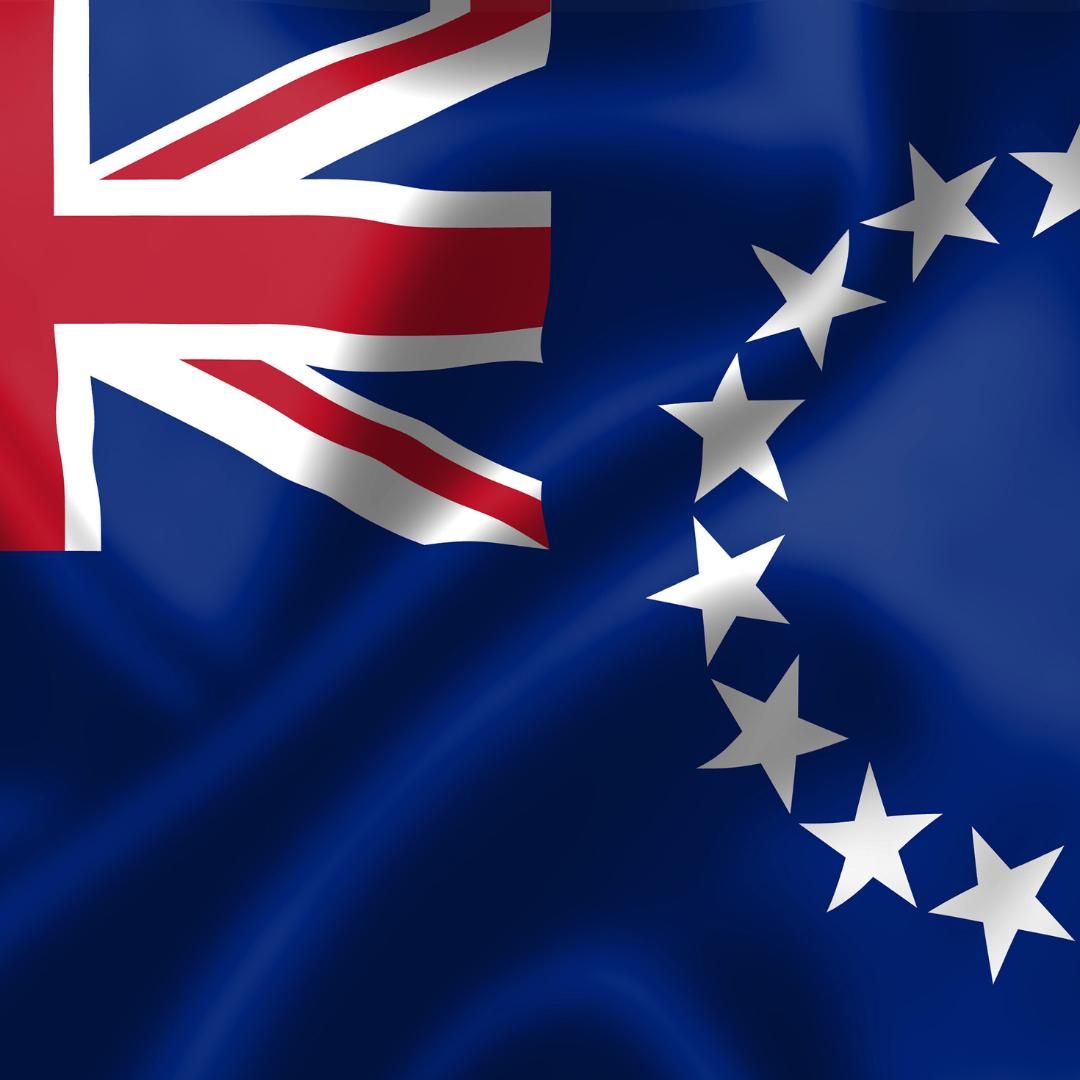Description
About
The Benefits
- Asset Protection: Cook Islands IBCs provide robust asset protection through established legal provisions, shielding assets from creditors and legal claims, prioritizing shareholder and director interests.
- Tax Advantages: Cook Islands IBCs benefit from favorable tax policies, typically exempt from local corporate taxes (including income and capital gains taxes) and not taxed on foreign income, facilitating tax-efficient international business operations.
- Privacy and Confidentiality: The Cook Islands prioritizes privacy by maintaining beneficial owner details confidential, with no public registry of shareholders, directors, or secretaries, ensuring confidentiality and protection of business interests. Records of shareholders, directors, and secretaries are retained by the Registrar but are not available to the public. Any changes in shareholder, director, or secretary must be notified to the Registrar within 30 days.
- Ease of Formation and Operations: Establishing and operating a Cook Islands IBC is straightforward with minimal paperwork and compliance obligations, reducing bureaucratic hurdles for business owners.
- International Business Operations: Cook Islands IBCs can conduct global business without physical presence requirements or ties to the Cook Islands, offering flexibility in location and scope of business activities.
- Non-Resident Directors and Shareholders: Cook Islands IBCs allow for international management and ownership, with directors, shareholders, and officers not required to be residents of the Cook Islands. Sole shareholders are permitted, and shareholders may be companies or individuals from any jurisdiction except the Cook Islands.
- Corporate Structure Flexibility: Cook Islands IBCs permit diverse corporate structures, allowing companies or trusts to serve as directors, shareholders, or officers, providing versatile options for ownership and management.
- Stability and Recognition: The Cook Islands offers a stable political and economic environment, recognized internationally as a reputable offshore jurisdiction, enhancing credibility for businesses.
- No Exchange Control Restrictions: The Cook Islands facilitates seamless financial transactions with no exchange controls, allowing free movement of funds in and out of the jurisdiction, supporting international business transactions and investments.
Offshore Bank Account
- Our Offshore Bank Account offering provides a comprehensive and secure offshore banking solution designed to complement your structure seamlessly. Experience a suite of private banking solutions that are typically unavailable in retail banks, all while enjoying the robust asset protection and privacy provisions afforded by the Nevis jurisdiction.
About The Cook Islands
The Cook Islands, situated in the South Pacific, is esteemed for its secure and stable offshore financial environment. With a commitment to financial privacy and asset protection, the Cook Islands is a favored jurisdiction for safeguarding wealth privately.
Consequently, a Cook Islands IBC is a strategic choice for those prioritizing robust asset protection, financial privacy, tax efficiency, legal stability, and efficient business operations within a reputable offshore jurisdiction.
Common Uses
Cook Islands IBCs are ideal for asset protection, international business operations, and tax efficiency. They offer a secure environment to shield assets from legal claims and creditors, making them suitable for investments, real estate, and intellectual property. Cook Islands IBCs enable global trade, investments, and financial transactions without local taxation on income earned outside of the Cook Islands. They are versatile entities facilitating various global business activities, appealing to individuals and businesses seeking flexible offshore solutions. Integrating an offshore bank account with a Cook Islands IBC allows for convenient financial asset management and enhanced privacy.
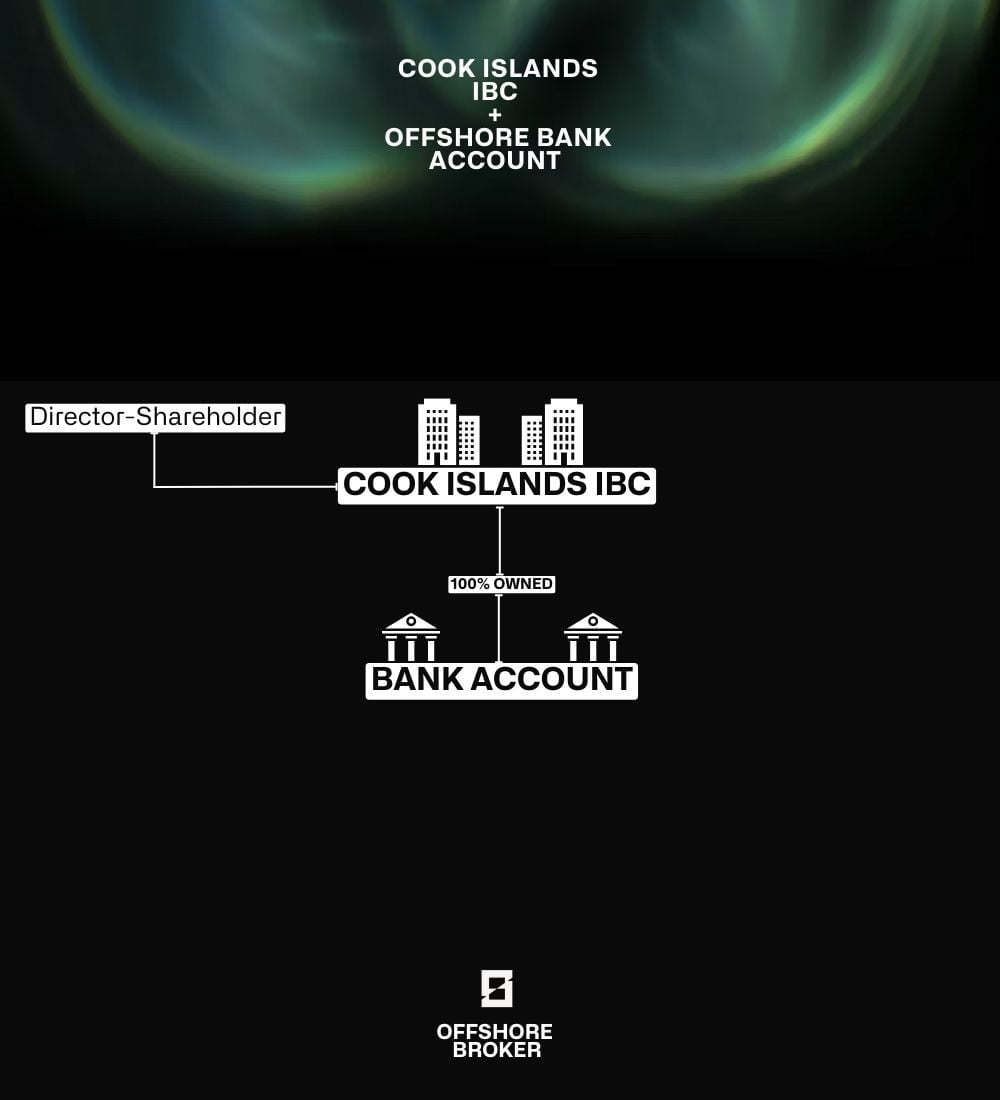
About
The Structure
- Shareholders: Cook Islands IBCs are owned by shareholders, who can be individuals or corporate entities. Shareholders hold shares representing their ownership interests in the company. Cook Islands IBCs can have one or more shareholders, and the details of shareholders are kept confidential.
- Directors: The company is managed by directors who oversee its affairs and decision-making. Cook Islands IBCs require at least one director, who can be an individual or a corporate entity. Directors do not need to be residents of the Cook Islands.
- Resident Secretary: A resident secretary, who must be an officer of a licensed Cook Islands trustee company, must be appointed to comply with local regulations.
- Share Capital: Cook Islands IBCs can have authorized share capital, typically defined at incorporation. The company issues shares to shareholders based on this authorized share capital, which can be expressed in any currency. The structure of the share capital involves several key elements. Firstly, the share capital is denominated in a specific currency (e.g., USD, EUR, GBP) to indicate the monetary basis of the company’s shares. Next, the number of shares to be authorized is determined, representing the maximum quantity of shares that the company can issue. Subsequently, the number of shares to be initially issued at incorporation is specified, which can be a portion of or equal to the authorized shares. Lastly, the par value of each share is defined, representing the nominal or minimum value per share upon issuance.
- For Example:
- Denominated in the currency of: USD
- No. of shares to be authorized: 1,000,000
- No. of shares to be issued: 100,000
- Par value of each share: $1.00
- For Example:
- Articles of Incorporation: The company’s structure and operations are governed by its Articles of Incorporation, specifying details such as the company’s name, registered office address in the Cook Islands, share capital, and internal management procedures.
- Registered Agent:A Cook Islands registered agent is required and is included in your incorporation fee.
- All of the above is made simple with Offshore Broker’s onboarding process which can see your IBC established in 2-5 days.
Offshore Bank Account
- The offshore bank account will be owned by the Cook Islands IBC and managed exclusively by the director/shareholder, offering flexibility and control over financial management within the structure.
FAQ: COOK ISLANDS IBC
Where are the Cook Islands?
The Cook Islands, situated in the South Pacific, is renowned for its stunning natural beauty and tropical climate. This archipelago of islands is located southwest of Tahiti and northeast of New Zealand. With its pristine beaches, crystal-clear waters, and lush landscapes, the Cook Islands offer a tranquil and idyllic escape in the heart of the Pacific Ocean.
Rarotonga is the largest and most populous island in the Cook Islands, serving as the capital and main hub for tourism and commerce. Avarua is the administrative center and commercial hub of Rarotonga, where visitors can explore local markets, shops, and cultural attractions.
The Cook Islands is also known for its offshore financial services sector, providing a range of financial solutions such as trusts and international business entities. This jurisdiction appeals to individuals and businesses seeking financial privacy, security, and strategic wealth management in a reputable offshore location.
The Cook Islands’ combination of natural beauty, welcoming atmosphere, and offshore financial services make it an attractive destination for those looking to enjoy a peaceful tropical setting while also benefiting from robust asset protection and financial opportunities.
What is a Cook Islands IBC?
A Cook Islands International Company is a type of offshore business entity registered in the Cook Islands, a jurisdiction known for its favorable business environment and asset protection laws.
Why choose a Cook Islands IBC?
Cook Islands IBCs offer benefits such as asset protection, tax efficiency, privacy and confidentiality (no public registers of shareholders), and flexibility in international business operations.
Why use Offshore Broker for my Cook Islands IBC?
Using Offshore Broker for establishing your Cook Islands IBC provides a cost-effective and efficient solution compared to traditional methods that often involve high attorney fees ranging from $7,000 to $15,000 USD. Our online platform enables you to form your Cook Islands IBC affordably and seamlessly, saving you time and money. We exclusively collaborate with trusted registered agents and service providers who meet our rigorous criteria for professionalism and reliability. By leveraging our network, you can rest assured that your Cook Islands IBC formation is handled by experts committed to delivering exceptional service and expertise at every step of the process. With Offshore Broker, you benefit from a streamlined incorporation process, transparent pricing, and access to knowledgeable professionals who specialize in Cook Islands IBC formations, ensuring a smooth and hassle-free experience.
What are the requirements for directors and shareholders of a Cook Islands IBC?
At least one director is required, who can be an individual or a corporate entity. Directors do not need to be residents of the Cook Islands. Cook Islands IBCs can have one or more shareholders, and shareholders can be individuals or corporate entities. Shareholder details are not publicly disclosed.
What ongoing obligations does a Cook Islands IBC have?
Cook Islands LLCs have minimal ongoing compliance requirements, such as paying annual government fees and maintaining records at the registered office in the Cook Islands. International company accounts and transactional records must be retained by resident secretary. Any changes in shareholder, director or secretary must be notified to Registrar within 30 days.
Do I need to visit the Cook Islands to form an IBC?
No, you do not need to visit the Cook Islands to form an IBC. The entire process can be facilitated through Offshore Broker who handles the incorporation on your behalf.
Are there restrictions on business activities for a Cook Islands IBC?
Cook Islands IBCs can engage in any legal business activities globally, subject to compliance with international laws and regulations.

